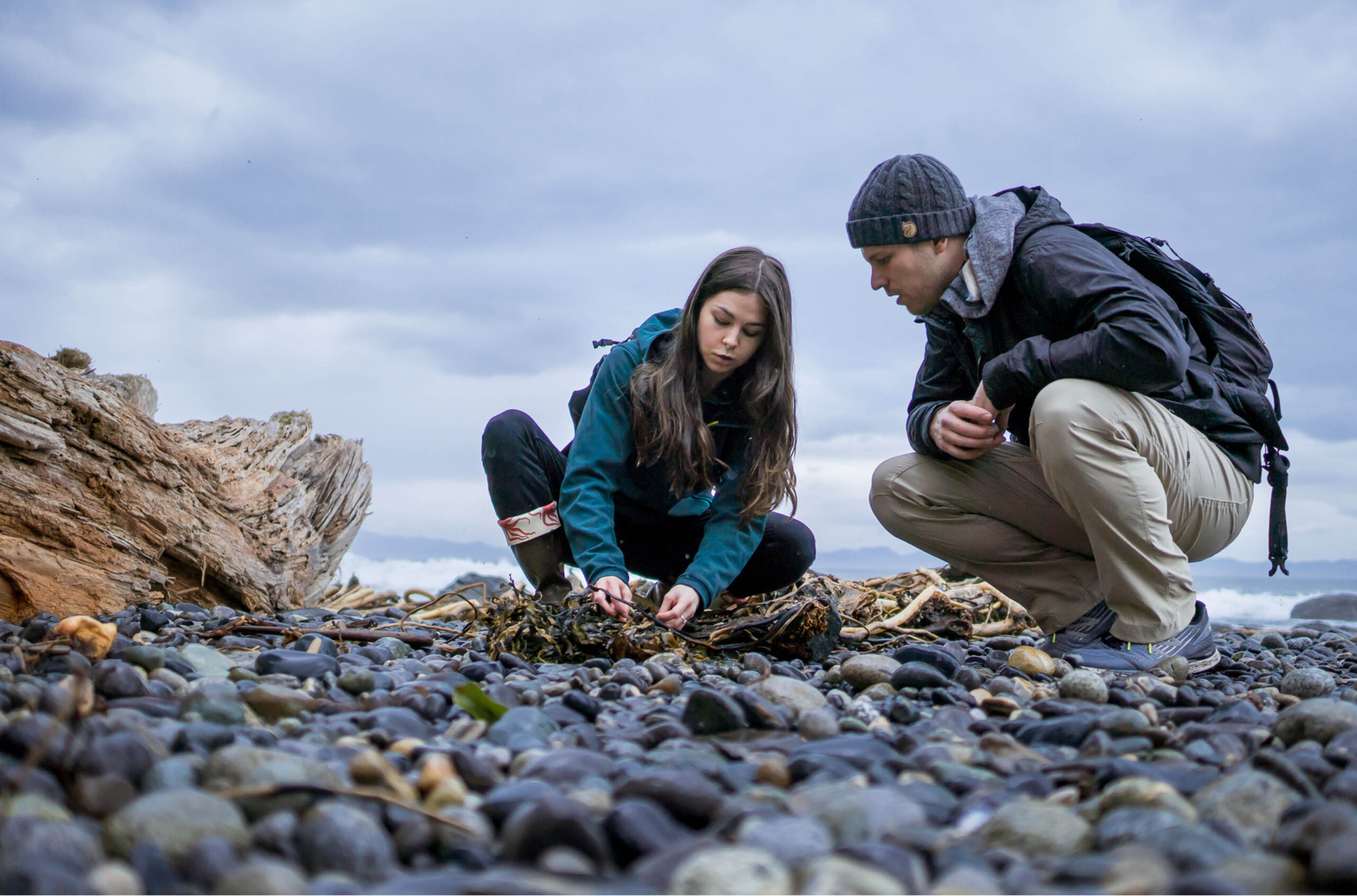Reducing the environmental impact of research: a shared responsibility
By targeting certain behaviours, we can significantly reduce the environmental impact of research without compromising quality.

From global warming to biodiversity loss, the environmental crisis is a critical issue for the Canadian and international research communities, which provide invaluable insight into environmental problems and offer solutions.
The fact that research is largely publicly funded means that it must be conducted responsibly and ethically. The research community has a social responsibility to minimize the negative environmental impacts of its activities so as not to jeopardize the safety and survival of populations. This responsibility, however, is rarely discussed.
In 2021, the Fonds de recherche du Québec (FRQ) launched the Action Plan for Environmental Responsibility in Research. At the same time, the FRQ Intersectoral Student Committee (CIE) examined the issue of environmental responsibility in research. The committee’s report, L’écoresponsabilité en recherche : constats, solutions et impacts, published in July 2023, summarizes the results of consultations with students and researchers, provides a review of the literature and makes 12 recommendations to encourage the Quebec research community to adopt sustainable practices.
The environmental toll of research
Certain common research practices have a significant impact on the environment: air travel alone among members of the Canadian academic community for work generate an average of 7.5 to nine tonnes of CO2 equivalent (CO2-eq) per year, compared to 1.1 tonnes for air travel by the average Canadian. These emissions far exceed the goals of the Paris Agreement, which calls for reducing greenhouse gas (GHG) emissions per person per year to 2.5 tonnes of CO2-eq by 2050 (roughly equivalent to a roundtrip flight from Montreal to Moscow). Air travel, especially to conferences, is by far the largest source of GHG emissions associated with research activities. The research community considers virtual conferences as an attractive solution with a carbon footprint that is 97 to 200 times smaller than in-person events.
Another environmental impact of certain research practices is the enormous consumption of energy and materials in laboratories. In 2014, the amount of single-use plastics used in biological, medical and agricultural research laboratories totalled 5.5 million tonnes, or about 83 per cent of the plastic recycled worldwide in 2012. Fume hood use accounts for about 10 per cent of energy consumption at some universities. And the air exchanged by these systems is often heated with fossil fuels ), emitting up to five tonnes of CO2-eq per year at certain universities. Some cutting-edge equipment, large research facilities and high-density servers are major energy guzzlers. For example, training a single artificial intelligence model can consume as much fuel as five cars over their lifetime. Computing servers are often located overseas and powered by fossil fuels.
The practices discussed in the CIE report all point to an undeniable fact: the environmental footprint of research far exceeds the threshold that would ensure a healthy future for the ecosystems on which we depend, despite the research community’s ability to innovate to minimize its impact. Given the urgent need for a sustainable transition, a key question is who is responsible for implementing environmentally sound research practices?
The publish or perish university culture
First, it is possible to target the most harmful behaviours without compromising the quality of research. Many unsustainable practices are driven by the pressures imposed by academia. The CIE’s work has shown that the current emphasis on research excellence often stands in the way of adopting greener practices. For example:
- Researchers feel compelled to attend international conferences, in part because of the importance placed on these activities in the evaluation of grant and award applications.
- Many laboratories also use disposable plastics rather than glassware in order to maintain a high rate of output and publication — another key criterion in the evaluation of grant and award applications.
In both cases, revising the criteria for research excellence would encourage researchers to reduce their environmental footprint without compromising the quality of their research.
In reality, the benefits of travel on research quality and collaboration appear to be less pronounced than one might think. Beyond one trip per year, there seems to be no correlation between air travel and scientific productivity. In addition, CIE respondents felt that cleaning glassware is actually less time-consuming than researchers generally believe.
On the other hand, everyone who was consulted for this report agreed that changes in practices should not impose excessive new constraints. Some current rules actually discourage the adoption of greener practices, such as the requirement to purchase at the lowest price (in some cases, a greener option such as taking the train may be more expensive than flying). To effect lasting change, the CIE suggests making greener choices easier until they become the default.
A shared responsibility
Given their strategic position in the research ecosystem and their resources, public funding agencies such as the FRQ can play a decisive role in ensuring the transition to more sustainable research practices, in particular by modernizing the way they view and evaluate research excellence. Such changes include modifying the criteria used to evaluate grant and award applications to emphasize the quality and impact of contributions rather than their quantity.
While the evaluation of grants and award applications is managed by funding agencies, it is primarily carried out by researchers who can and should promote change by emphasizing research quality rather than quantity in interpreting evaluation criteria.
Second, universities and research centres can put systems in place (e.g., procurement, expense processing, etc.) that reduce barriers to environmental responsibility and make the greener option the default choice.
There is also a shared responsibility to raise awareness within the research community. Awareness plays a key role in the adoption of new practices, especially in the face of entrenched habits. For example, simply highlighting the issue of air travel would influence the behaviour of the research community. Moreover, awareness-raising is most effective when all stakeholders are involved. Researchers can act as role models for their colleagues, while funding agencies and universities can implement more structured initiatives.
The future of environmental stewardship in research
By targeting specific behaviours, we can significantly reduce the environmental impact of research without compromising quality. To this end, the CIE has developed a set of recommendations for the FRQs that universities can also use as a guide. Their main aim is to impose additional constraints and to ensure that researchers who adopt environmentally sound practices are not penalized. To make research more sustainable, the criteria for evaluating applications for grants and awards must also be revised so that less weight is given to activities that produce valuable scientific spin-offs but at a huge cost to the environment.
Once people have become more aware of the environmental impact of air travel, restrictive measures could be the natural next step. Many European and American institutions have already introduced such measures, such as reimbursing air travel only if ground travel exceeds a certain duration, or limiting travel by researchers in certain departments.
The climate change crisis requires a swift and strong ecological transition in all areas of activity. The research community has a responsibility here, especially because it is publicly funded. It is time to take another look at our research practices. Although the purpose of the CIE’s recommendations is to advise the FRQs on their approach to making research in Quebec more sustainable, the underlying findings could serve as guidelines for the broader research community.
Composed of 12 members, the Intersectoral Student Committee is a joint committee of the Fonds de recherche du Québec – Nature et technologies, Santé et Société et culture. Their mandate is to advise Quebec’s chief scientist as well as the boards of the FRQs on issues that affect early-career researchers.
Featured Jobs
- Education - (2) Assistant or Associate Professors, Teaching Scholars (Educational Leadership)Western University
- Canada Excellence Research Chair in Computational Social Science, AI, and Democracy (Associate or Full Professor)McGill University
- Veterinary Medicine - Faculty Position (Large Animal Internal Medicine) University of Saskatchewan
- Psychology - Assistant Professor (Speech-Language Pathology)University of Victoria
- Business – Lecturer or Assistant Professor, 2-year term (Strategic Management) McMaster University















Post a comment
University Affairs moderates all comments according to the following guidelines. If approved, comments generally appear within one business day. We may republish particularly insightful remarks in our print edition or elsewhere.